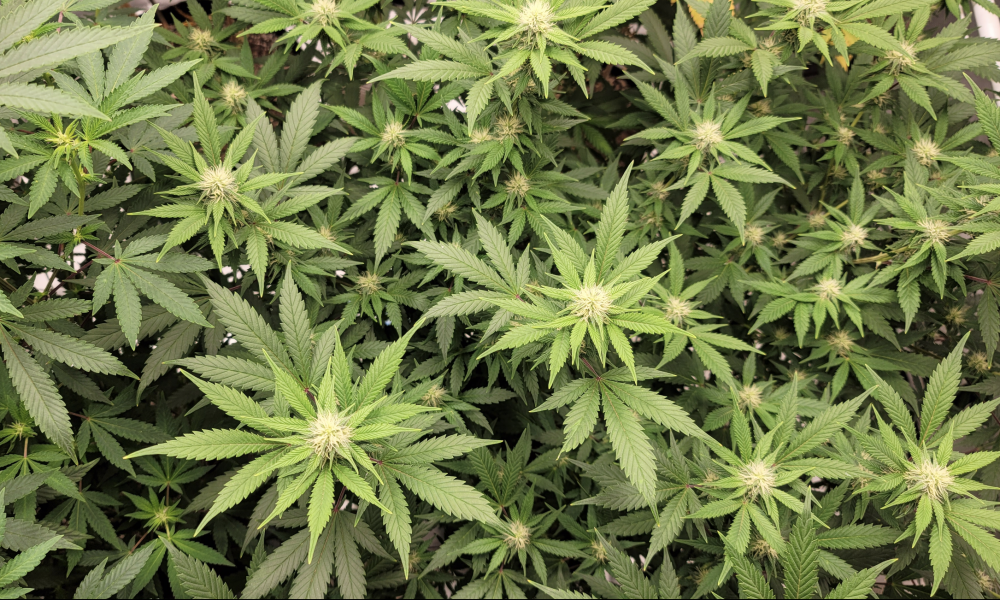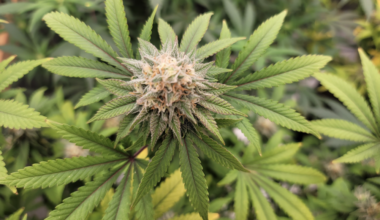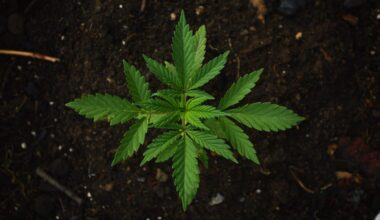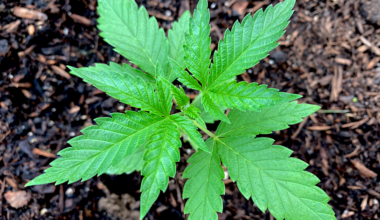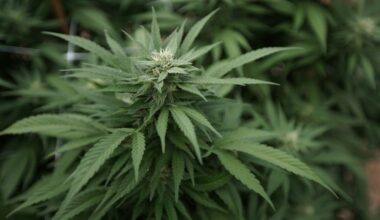A federal judge gave a campaign to legalize medical marijuana in Nebraska a second wind on Monday, siding with the activists in a lawsuit over the state’s signature gathering requirements for ballot measures.
With about three weeks left before the July 7 deadline to turn in enough valid petitions to qualify a pair of reform measures for the ballot, U.S. District Judge Joh Gerrard issued a preliminary injunction against the state, barring officials from enforcing a requirement that activists collect signatures from a minimum of five percent of voters in at least 38 counties across the state.
Nebraskans for Medical Marijuana (NMM) and the ACLU of Nebraska sought the relief through a lawsuit filed last month as the prospects of getting ballot qualification dimmed due to the loss of critical campaign funding.
Activists argued that the geographical signature requirement is unconstitutional under the Equal Protection Clause, unnecessarily suppressing the ability of citizens to put issues on the ballot by giving outsized influence to people living in remote, rural areas of Nebraska.
The judge sided with the campaign, and also had some sharp words for the secretary of state and attorney general, which in their filing had suggested that the 38-country rule is “inseverable from the general initiative power” and, without it, the entire citizen initiative process would need to be invalidated.
“For the State to argue that the baby must go with the bathwater is eyebrow-raising,” the ruling states. “The Court disagrees with the Secretary: The right of initiative is, the Court finds, a fundamental right that the citizens of Nebraska possess, so the State may not discriminate against them in their exercise of that right.”
The order is preliminary, so there’s still a chance that the overall case challenging the requirements might not turn out in activists’ favor and that their efforts through the beginning of next month could end up being for nought, but the court said that it issued the temporary injunction because it feels that the activists “are likely to succeed on their Equal Protection claim.”
BIG NEWS: Thanks to our lawsuit, a judge just blocked an unconstitutional roadblock in our state’s ballot qualification process. https://t.co/QABBowBvWF pic.twitter.com/9dlm2wJVsv
— ACLU of Nebraska (@ACLUofNE) June 13, 2022
Sen. Anna Wishart (D), campaign co-chair for NMM, said in a press release that the court order is “a big win for all the Nebraskans fighting for years to legalize medical cannabis.”
“Nebraskans across the state support this issue because they know a loved one, friend or neighbor who is sick and would benefit from having access to medical cannabis,” she said. “They deserve a vote in November.”
Sen. Adam Morfeld (D), another proponent of the legalization initiatives, said that this is “an important development for the medical cannabis campaign, but it’s also so much more.”
This is an incredibly consequential decision that safeguards Nebraskans right to petition in a constitutionally sound way. We will continue our signature collection efforts to legalize medical marijuana! https://t.co/C8AcqU7ApX
— State Senator Adam Morfeld (@Adam_Morfeld) June 13, 2022
“The right to petition our state government for change is sacred—it’s fundamental to good governance,” he said, adding that the court order will help protect Nebraskans’ political power in this critical stretch ahead of a final decision, and it suggests we’re doing what we need to do to win this lawsuit and permanently end Nebraska’s unconstitutional multicounty signature distribution requirement.”
NMM announced last month that it was restructuring its plan to put medical marijuana legalization on the ballot after losing key funding. The campaign had aimed to raise $1 million so that it could hire paid signature canvassers, but after the death of one key donor and terminal diagnosis of another, the campaign is left with just about $30,000 on hand.
Supporters held a virtual press conference last month to detail their new plan to qualify a pair of cannabis initiatives for the November ballot.
One initiative would require lawmakers to codify protections for doctors who recommend cannabis and patients who purchase and possess it. The other would mandate legislative action to safeguard marijuana businesses that supply the product.
The reason that the measures are narrowly tailored and bifurcated is because activists want to avoid the type of legal challenge that led the state Supreme Court to invalidate a prior medical cannabis legalization measure that they successfully collected more than enough signatures for to qualify for the 2020 ballot.
The court ruled that year that the initiative violated the single-subject rule for ballot measures because it took a comprehensive approach to setting regulations for the program.
For each of the new 2022 initiatives, activists will need to collect about 87,000 valid signatures. Activists said early last month that they’d gathered about 25,000.
—
Marijuana Moment is already tracking more than 1,000 cannabis, psychedelics and drug policy bills in state legislatures and Congress this year. Patreon supporters pledging at least $25/month get access to our interactive maps, charts and hearing calendar so they don’t miss any developments.![]()
Learn more about our marijuana bill tracker and become a supporter on Patreon to get access.
—
Lawmakers attempted to advance medical cannabis reform legislatively last year, but while the unicameral legislature debated a bill to legalize medical marijuana in May, it failed to advance past a filibuster because the body didn’t have enough votes to overcome it.
Meanwhile, the campaign is also facing resistance from Gov. Pete Ricketts (R), a staunch opponent of legalization. Late last year, he partnered with the prohibitionist group SAM Nebraska on an ad urging residents to oppose cannabis reform in the state.
For what it’s worth, Nebraska’s attorney general argued in an opinion in 2019 that efforts to legalize medical marijuana legislatively in the state would be preempted by federal law and “would be, therefore, unconstitutional.”
Maine’s Legal Marijuana Stores Are Effectively Displacing Illicit Market, State Report Finds
Photo courtesy of Mike Latimer.
Medical Disclaimer:
The information provided in these blog posts is intended for general informational and educational purposes only. It is not a substitute for professional medical advice, diagnosis, or treatment. Always seek the advice of your physician or other qualified healthcare provider with any questions you may have regarding a medical condition. The use of any information provided in these blog posts is solely at your own risk. The authors and the website do not recommend or endorse any specific products, treatments, or procedures mentioned. Reliance on any information in these blog posts is solely at your own discretion.
